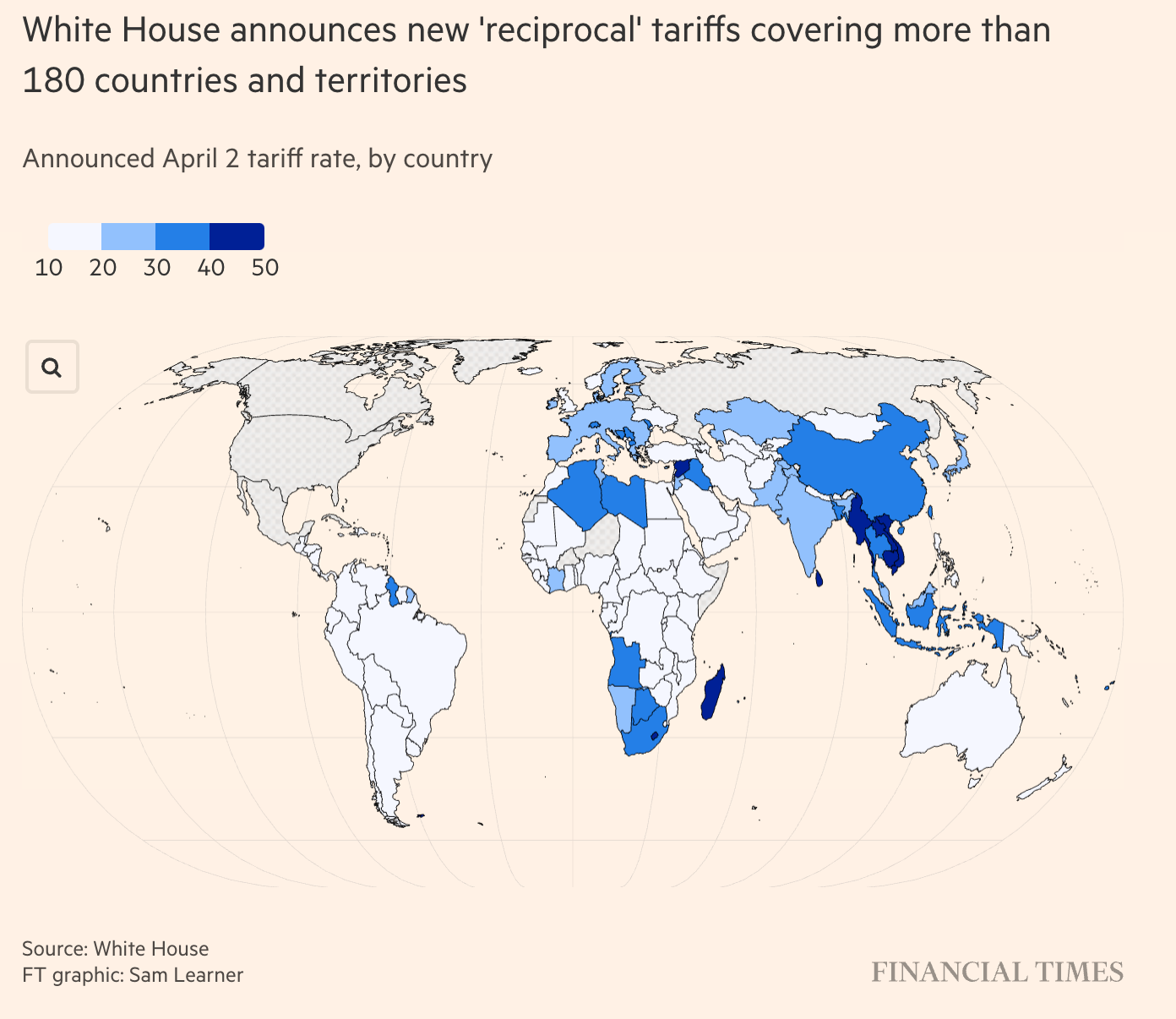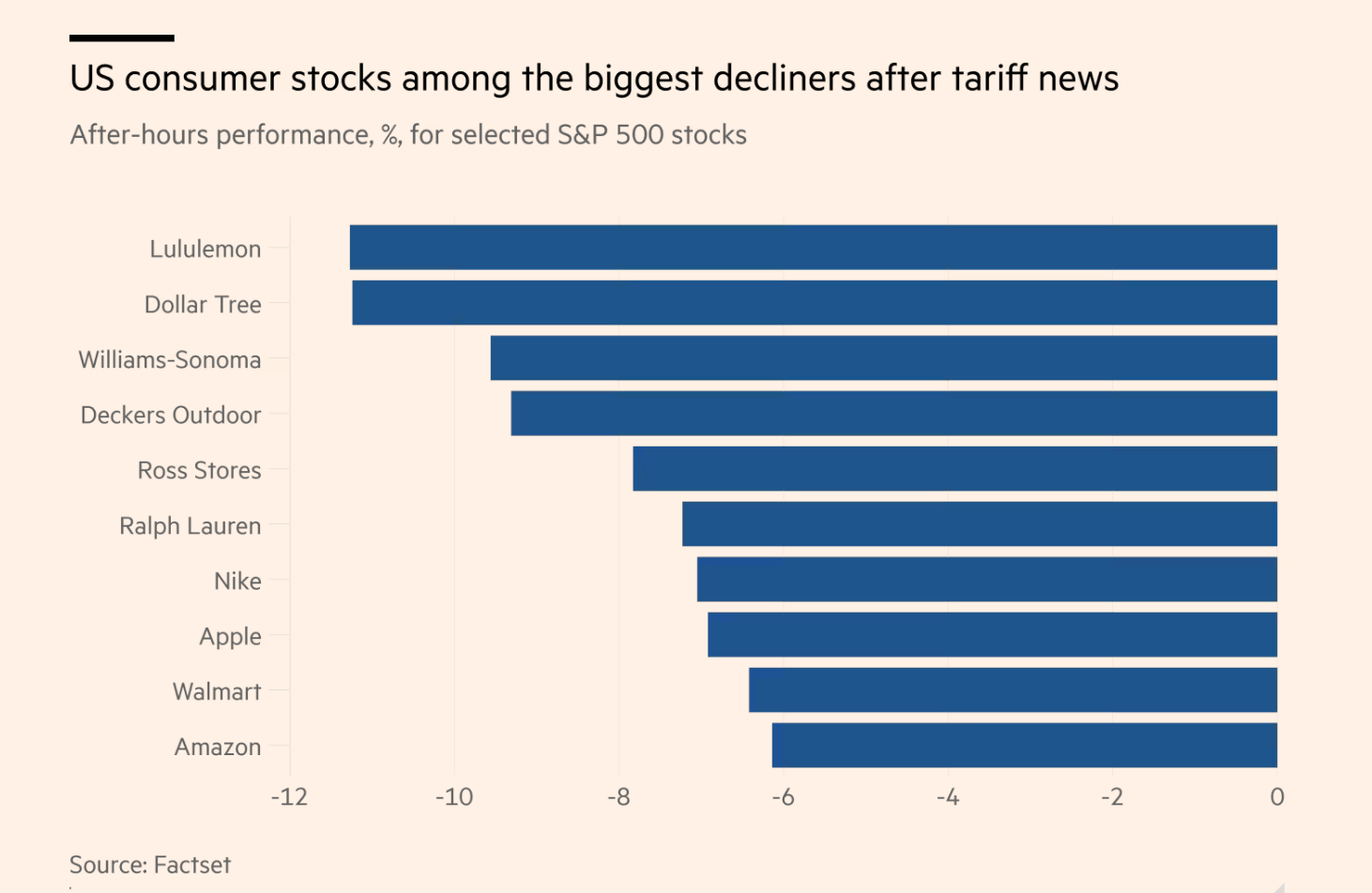APRIL 06, 2025—GENERAL EDITION
This is a weekly free look of our premium daily Four Ideas email. If you're not already a subscriber, sign up for a five-day preview.
HEADLINES:
- Trade war triggers global market pessimism (NY Times)
- Apple plunges 9%, leading tech sell-off (NY Times)
- Amazon and Meta face China tariff impacts (WSJ)
- Stocks suffer biggest drop since March 2020 (WSJ)
- US dollar falls on new levies (FT)
- Bling, bags, booze hit by trade war (FT)
- Retail traders buy amid tariff-induced market turmoil (Bloomberg)
- Worst S&P 500 day since 2020 as stocks plummet (Bloomberg)
TWO GRAPHS:

Countries in Asia face the highest new tariffs, up to 50%, while many others see lower rates. This strategic focus on Asia can significantly impact global trade dynamics, affecting supply chains and international relations.

Lululemon's stock plummeted nearly 12% after tariff news, leading consumer stock declines. This sharp drop contrasts with Amazon's smaller decrease near 5%, highlighting differing sensitivities to trade tensions. Such significant drops could indicate potential impacts on future profitability and market strategy adjustments.
THE IDEAS:
Mentions: TSLA,META,C,HON,BA
01. Geo-economic reorganization reshapes global trade.
A structural, secular, and systemic shift in tariffs is reshaping international trade. Initiatives like Trump's tariffs indicate a prolonged and fundamental change to trade patterns. This shift will likely see countries strengthening regional alliances and minimizing reliance on traditional global powers, impacting multinational companies' supply chains.
Related reading:
Financial Times: How to make sense of Donald Trump’s tariffs
02. Open interlining revolutionizes airline operations.
Airlines adopting open interlining can bypass legacy systems, allowing more dynamic and scalable partnerships. This shift will enhance efficiency and passenger experience, with potential revenue impacts. Airlines equipped with this strategy may outperform competitors still reliant on traditional interline agreements.
Related reading:
Skift: Open Interlining: Inside the Strategy Transforming How Airlines Connect Flights
03. Digital compliance transforms healthcare efficiency.
AI technologies are streamlining healthcare compliance and automating workflows, leading to enhanced data security and operational efficiency. As more healthcare providers embrace these innovations, there will be a significant impact on administrative costs and patient service delivery.
Related reading:
Healthcare Dive: Balancing innovation and compliance: A risk-smart approach to digital evolution
04. Experience-driven travel reshapes industry dynamics.
The shift towards experience-driven travel influences industry dynamics, with companies refocusing on personalized and unique offerings. This trend is aligned with changing traveler behaviors and leveraging tech in booking processes, potentially leading to an increase in travel experiences sector growth.
Related reading:
Skift: The Rise of Travel Experiences: 4 Key Insights From Industry Decision Makers
